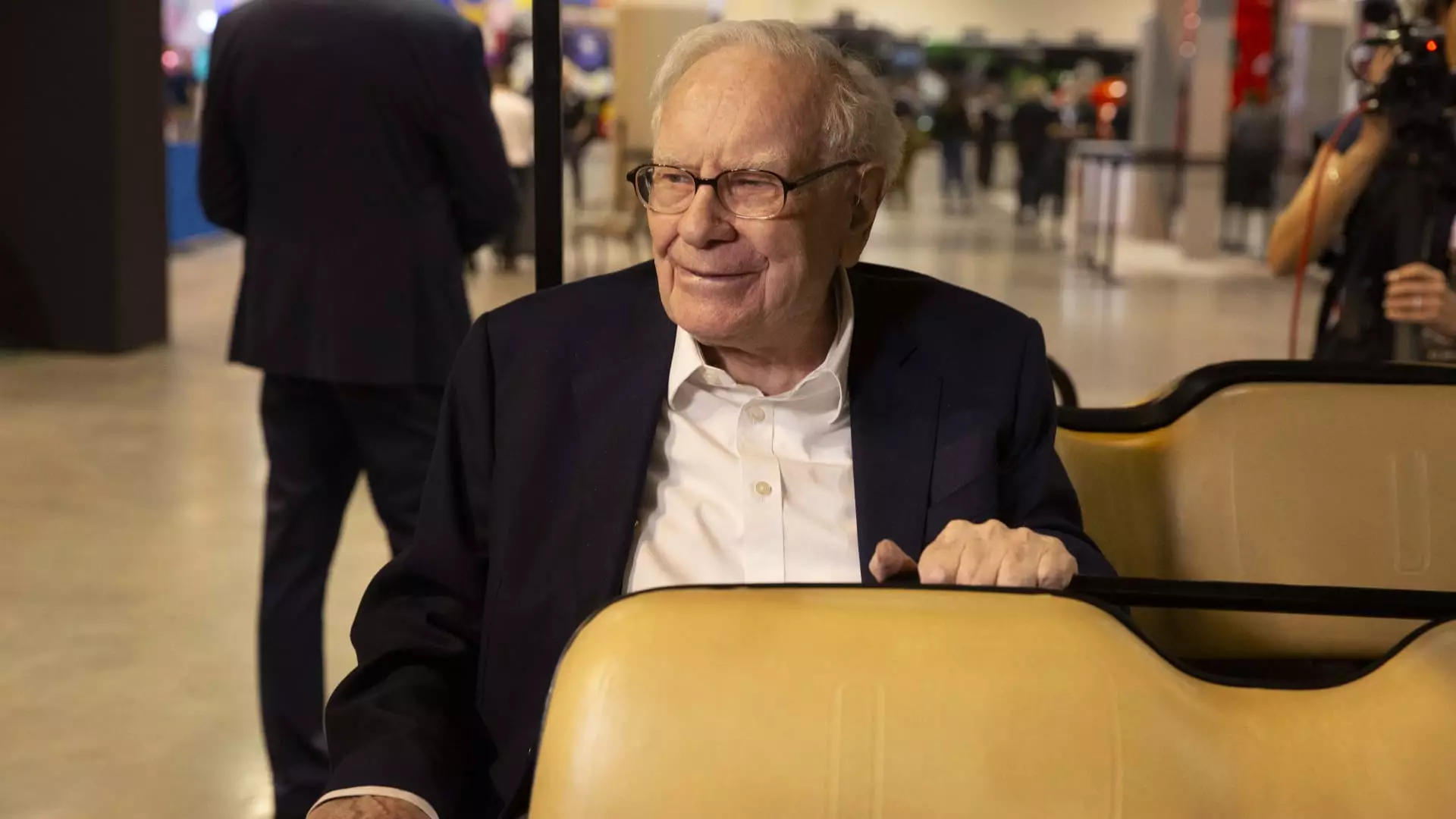Investment legends rarely come without their fair share of scrutiny. As one of the most closely watched companies in America, Berkshire Hathaway recently reported impressive operating earnings, igniting a blend of optimism and concern among its shareholders. With noteworthy figures emerging from the conglomerate led by Warren Buffett, it invites a deeper examination of its strategies, financial state, and the sentiment plaguing investors regarding its substantial cash reserves.
Berkshire Hathaway’s fourth-quarter operating profit presented a striking increase of 71%, reaching $14.5 billion. This surge can largely be attributed to its robust insurance underwriting performance, which reported a staggering 302% increase compared to the previous year—amounting to $3.4 billion. However, it is essential to recognize that while the operating earnings displayed a healthy rise, the investment arm of the conglomerate revealed a more sobering reality. Investment gains declined sharply from $29.1 billion to $5.2 billion, signifying a dramatic slowdown in investment performance. This disparity raises questions about both the sustainability of its operational success and the inconsistent volatility often experienced in equity markets.
Berkshire Hathaway’s growing pile of cash, which swelled to a breathtaking $334.2 billion after a net increase in sales of equities, has been a double-edged sword for shareholders. Despite Buffett’s assurances that his cash reserves do not signify a dimming enthusiasm for investments, many remain perplexed. The narrative appears at odds with Buffett’s storied reputation of value investing, as he divests from significant holdings in tech giants like Apple and Bank of America. The decision to reduce stock holdings, accumulating record-breaking cash, raises eyebrows while simultaneously bringing to light the dilemma of whether Buffett is positioning the company for future opportunities or merely adopting a defensive strategy amid perceived high stock market valuations.
In his annual letter, Buffett conveyed an outlook tempered by caution, suggesting that inflated market valuations have tempered his appetite for new investments. The phrase “often, nothing looks compelling” echoes a sentiment shared by many seasoned investors who possess a skeptical eye on current market conditions. Despite this sentiment, Buffett emphasized confidence in Greg Abek, his potential successor, suggesting that the future of Berkshire Hathaway’s investment strategies remains in capable hands. However, the absence of buybacks for two consecutive quarters has kindled frustration among investors, who argue that opportunities for repurchasing stock could signal confidence in the company’s valuation prospects.
With Berkshire Hathaway having outperformed the S&P 500 last year, climbing 25.5% in 2024, the question remains whether this trend can sustain momentum in an unpredictable economic climate. While some investors align with Buffett’s strategic patience—believing that a conservative approach could yield lucrative opportunities in the event of a downturn—others express impatience and a need for more active management of the identifiable cash cache. Bill Stone, chief investment officer at Glenview Trust Company, reassured shareholders of the importance of remaining in a position of financial strength for weathering adversities ahead.
With Berkshire Hathaway in its current position—boasting impressive operating profits yet wrestling with mounting cash reserves—its future trajectory remains contentious. Will Buffett and his team pivot toward aggressive capital deployment, or will they continue this methodical approach? As the broader equity market faces renewed scrutiny regarding its valuations, the actions taken by Berkshire Hathaway could indeed serve as a harbinger for the investment community at large. The patience and strategic foresight exhibited by one of the financial world’s icons will likely play a pivotal role as investors contemplate their portfolios in an environment defined by volatility and uncertainty. Only time will tell if this conservative maneuvering will pay off in the long run, as shareholders and market analysts alike gear up for what lies ahead.

